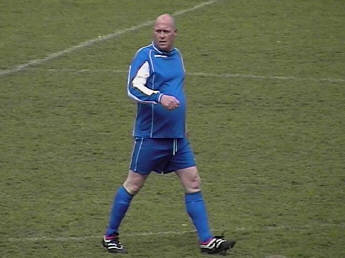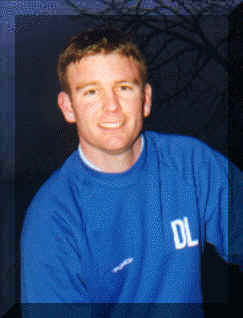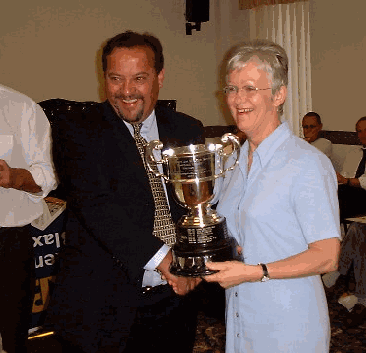|
|
|
We
are Bury Town Football Club (1995) from the small town of Bury St Edmunds,
Suffolk,we are situated midway between Cambridge and Ipswich on the A14
Our ground is RAM MEADOW, Cotton Lane, Bury St. Edmunds, Suffolk, England or uk
Telephone Number 01284 754721
From A14 exit at Bury St Edmunds Central
Junction and follow signs for Historic Bury St Edmunds. At traffic lights (not
pedestrians) turn left and follow signs for long stay car park. The Football
Pitch is along the left hand side of this car park, charges for parking are 60p
per occasion between 8am and 6pm.
Manager
Richard
Wilkins
Assistant Managers
Trevor Collins
John Zdrenka

Reserves Manager
Neil
Reader

Under 19's Manager
Danny
Laws

Team Physiotherapist
Darren Gibbs
President
Mr Cyril Elsey
Directors
Chairman
and treasurer
Russel
Ward
vice
chairman
Robin
Calton
on
the board
Bernard Turner
David Scarfe
Wendy Turner
Secretary
Wendy Turner
(Collecting div 2 title) 
Supporters
Association
Chairman
Peter Veal
Vice-chairman Mark Coleman
Secretary
Bev Dorling
Treasurer
Bill Fuller
Comittee Chris Ward
The
History Of Bury Town
Bury
Towns Ram Meadow ground has an estimated capacity of 3500 with covered
accomodation for 1500 spectators, including seating for 300.
The club was formed in 1872 and was one of 11 founder members of the Suffolk
County FA in 1885. Prior to changing its name to Bury Town, the club was known
as Bury United playing initially in the Norfolk and Suffolk league and then the
Essex and Suffolk Border league.
The Blues moved to Senior football by becoming founder members of the Eastern
Counties League in 1935 and gained their first honour when they won the Suffolk
Senior Cup in 1936/7, a trophy they retained for the next two seasons. 1937/8
saw the club achieve its best pre-war league position of runners up before the
Competition was suspended due to the outbreak of war. Bury Town won the Suffolk
Senior Cup for the fourth time in 1945 before resuming league action in 1946.
In 1958/9 Bury Town became the first ever winners of the Suffolk Premier Cup and
went on to retain the trophy for the next three seasons. In 1961/2 the Eastern
Counties League Cup was won for the first time and then in 1963/4 the club
won the Eastern Counties League Chapionship for the only time in its history,
recording an excellent treble by also winning the League Cup again and the
Suffolk Premier Cup for the fifth time.
This success prompted the Club to join the Metropolitan League in 1964 when,
once again, they won the Suffolk Premier Cup. During the 1965/6 campaign, Bury
recorded yet another treble winning the Metropolitan League Championship, the
Metropolitan League professional cup and for the seventh time, the Suffolk
Premier Cup.
In 1967/8 The Blues won the Metropoilitan League Cup for the only time, and
finished runners-up in the league. The Metropolitan League Championship was won
for the second and last time in 1968/9 when the club reached the the First Round
Proper of the FA Cup for the only time in its history. 3000 spectators saw The
Blues hold Third Division leaders AFC Bournemouth in a goalless home draw at
Kings Road, but unfortunately they lost the replay by a 3-0 margin at Dean
Court.
1970/1 was the clubs last season in the Metropolitan League when they finished
as runners-up and also lifted the Suffolk Premier Cup for the eigth occasion. In
1971/2 Bury Town moved into the Southern League, but disappointing results
promted the unpopular but necessary return to the Eastern Counties League in the
1976/7 season. A year later, The Blues moved to Ram Meadow and again won the
Suffolk Premier Cup.
In 1986/7, which proved to be Bury Towns last season in the Eastern Counties
League until their Reserve team was admitted in 1991, the Club enjoyed another
good run in the FA Cup reaching the fourth qualifying round. The Blues were
drawn away to Cola Conference League leaders Enfield and forced a 0-0 draw
before 842 spectators. A crowd of over 2500 assembled at Ram Meadow for the
replay(to date a ground record) but unfortunately Bury were unable to pull off a
giant-killing act, as the visitors sneaked home narrowly by a 1-0 margin.
In 1987/8 season, Bury rejoined the Southern (Beazer) League and experienced
mixed fortunes in the Southern Division. After a difficult period in the early
90-s, the Club restructured in the Spring of 1995 and is now known as Bury Town
FC (1995) Ltd. The 1995/6 season also saw the Club accepting a transfer to the
Midland Division. After a disappointing start to the season, The Blues changed
managers, appointing Tony Godden, the former West Brom goalkeeper and
subsequently manager at Kings Lynn, to the position. After completion of only
one season in the Midland Division, Bury were unable to maintain a strong enough
fight and were unfortunately relegated to the Jewson Premier League. However,
despite relegation Bury did win the Suffolk County Premier Cup beating
Woodbridge Town in the replay at Ram Meadow 5-4 on penalties.
The 1996/7 season, being the first in the Jewson Premier for some considerable
time saw the club finishing as top Suffolk club in seventh position. Recent
seasons have seen little changes in performance; in fact finishing in the lower
half of the table. Keith Vince took sole charge in 1998/9 season but decided to
retire from Jewson football due to work commitments.
Under new management for season 2000/1, ex-professional Colchester United,
Richard Wilkins is in charge, with local person, Trevor Collins, his assistant.
Site By Peter Veal